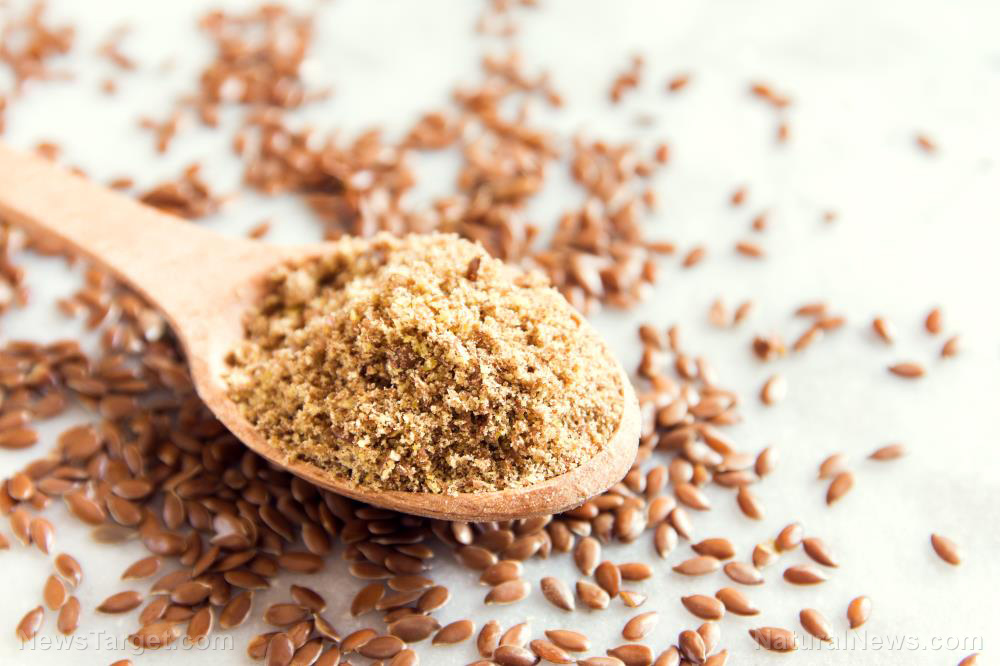Researchers: Eating fatty fish can boost omega-3 levels and reduce heart disease risk
10/21/2019 / By Melissa Smith

Omega-3 fatty acids are important nutrients that the human body needs. In fact, omega-3 intake has been linked to a lower risk of cardiovascular disease. A recent study in the journal Nutrition Research supports this link as a team of researchers from the U.S. and Italy found that olive oil, fatty fish, and omega-3 supplements may boost a person’s omega-3 levels, which could then protect against cardiovascular disease (CVD).
The researchers looked at whether the consumption of olive oil, fatty fish, or omega-3 supplements could improve a person’s levels of red blood cell oleic acid and omega-3 index, which is a blood marker for omega-3 levels. An omega-3 index of eight percent or above is considered optimal, while a low omega-3 index suggests a higher risk of sudden cardiac death. (Related: Consuming EPA and DHA omega-3 produces a “desirable” Omega-3 Index score and also reduces your risk of heart disease.)
The researchers examined 461 participants from the Gruppo Italiano per lo Studio della Sopravvivenza nell’Infarto Miocardico–Heart Failure (GISSI-HF) study. For three months, the participants took either an olive oil placebo or an omega-3 supplement every day. They also kept a record of their consumption of olive oil and fatty fish. Before and after the intervention, the research team collected samples of red blood cells from the participants to measure their omega-3 index.
The results showed that the levels of red blood cell oleic acid reflected the participants’ olive oil intake, while omega-3 levels reflected fatty fish consumption and omega-3 supplementation. After treatment, the researchers observed an improvement in the omega-3 index of the participants who took the supplement. At three months, more participants reached the proposed target omega-3 index level of eight to 12 percent.

|
Discover how to prevent and reverse heart disease (and other cardio related events) with this free ebook: Written by popular Natural News writer Vicki Batt, this book includes everything you need to know about preventing heart disease, reversing hypertension, and nurturing your cardiac health without medication. Learn More. |
Based on these results, the research team concluded that olive oil consumption could increase the levels of red blood cell oleic acid, while fatty fish intake and omega-3 supplementation could improve omega-3 levels. These factors all contribute to an increased protection against CVD.
More reasons to increase your intake of omega-3s
Omega-3s are not just good for your heart, they also bolster your body’s overall defense against many kinds of diseases. Here are more reasons why this essential fatty acid should be a staple in your regular diet:
- May fight inflammation – Omega-3s were found to be beneficial for people with rheumatoid arthritis. This condition, along with other types of arthritis, is an inflammatory disease. The anti-inflammatory effects of omega-3s were attributed to docosahexaenoic acid (DHA) and eicosapentaenoic acid (EPA) – two types of omega-3 fatty acids – as supported by an animal study published in the British Journal of Clinical Pharmacology.
- May aid in weight loss – Taking omega-3 supplements may help you achieve your weight loss goals, according to a study published in The Journal of Nutritional Biochemistry. However, more research is needed to confirm this effect.
- May promote infant health – Taking a high-dose fish oil supplement during pregnancy may reduce the baby’s risk of developing asthma later in life, according to a study published in the New England Journal of Medicine.
Before taking omega-3 supplements, note that they may cause mild side effects. According to the National Center for Complementary and Integrative Health (NCCIH), they may include bad breath, unpleasant taste, bad-smelling sweat, and headache. In some cases, omega-3s can cause gastrointestinal issues like heartburn, diarrhea, and nausea. The NCCIH also warns that omega-3s may interact with anticoagulants or drugs that stop the blood from clotting. Consult your healthcare provider first before taking omega-3s and other supplements.
Sources include:
Tagged Under: cardiovascular disease, diet, fatty acids, fatty fish, Fish Oil, functional food, heart disease, heart health, natural cures, natural medicine, nutrients, oily fish, oleic acid, olive oil, omega 3, omega 3 supplements, Omega-3 Index, prevention, research, supplements



















